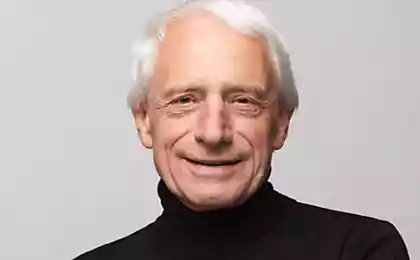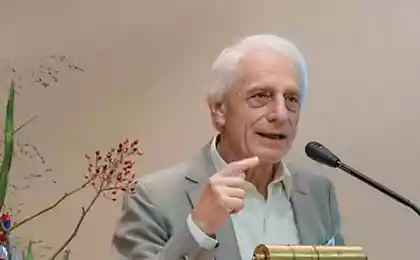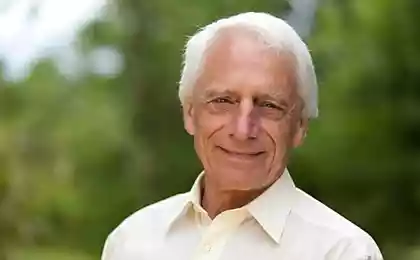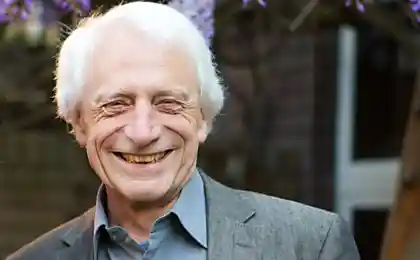1436
The Alfred Langley: Is love happiness
Let's talk about what we are willing to do so - about Love
. Not so easy to talk about love. In humans, a lot of contradictory experiences regarding love, because it's a big, huge topic. On the one hand, it is associated with great happiness, but it also entails a lot of suffering and pain, and sometimes is even reason to commit suicide.
It's hard to talk about this great subject, because there are so many different forms of love. For example, parental love, brotherly-sister, children, gay, geterosekseksualnaya love, love of self, love of neighbor, love of art and nature, plants and animals.
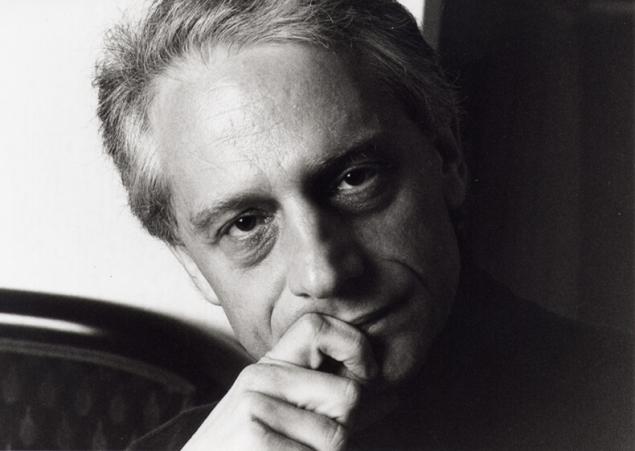
And, above all, love - a central theme of Christianity, namely, agape - love of neighbor. We can experience love in the most various forms: from a distance, platonic, in the form of sublimation or in the form of physical love. Love can be associated with different positions, with sadism, masochism, various perversions. And in every single dimension of those that were called, wherever you look - this is the theme of a huge, inexhaustible
. Before we begin, I want to offer you a question: "Do I have a question in connection with love? Do I have a problem with love? »
In 604 BC, Lao Tzu wrote: "Duty without love is not happy (sad). Truth without love makes one critical (dependent on criticism). Education without love generates conflict. The procedure without love makes one petty "- this is important for students and professors; - "Subject knowledge without love makes a person is always right. Possession without love makes people mean. Faith without love makes a person a fanatic. Woe to those who love to stingy. Why live, if not to love? "This ancient knowledge.
Brilliantly, masterfully he describes Lao Tzu is the central moment of love: it makes us human. It makes us available. It opens us and gives us the opportunity to many relationships, relationships. But how can we be so? How can we learn to love? About what was going on in love? How can we experience the love today?
Today, in an age when love called unstable utopia and when some representatives of modern literature, modern philosophy say, execution of longing, longing for human love does not give man happiness. Today we often pessimistic view of love. A huge divorce rate indicates how difficult it is to carry out the love in my life. However, this was not always the case. In the era of romanticism dominated much faith in love. In Christianity, love is seen as something central to life.
In this report, I would like to show the way, how love can lead to a deep happiness, despite the pain that is associated with it.
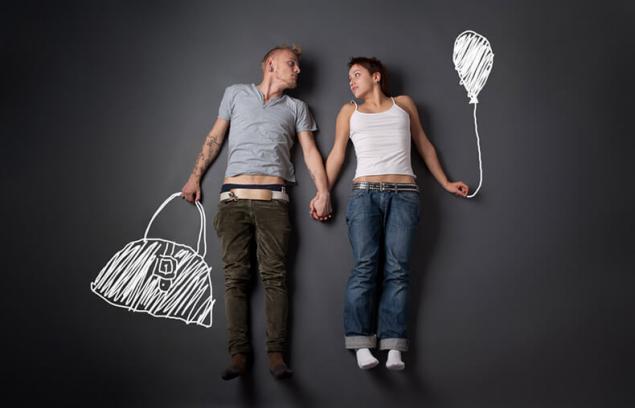
All of us who study psychology and know that a huge number of studies confirm that love - a central element in the healthy development of the psyche. Without love our children grow up traumatized, they can not reveal their skills, find themselves; they develop personality disorders. Excess of love does the same thing: when too much love, it can not be a proper love. And for each adult love - the most important basis for quality of life, necessary to his life was filled with
. In numerous interviews with dying, they were asked to answer the question: "If you look back at your life, what was in it the most important," And in the first place out of all the responses was: my relationships, my relationship with other people, full of love <. br>
But love is threatened, they turned against it many elements of life: we ourselves - our inclinations, our limitations - and external conditions - social, economic, cultural. So let's try to take a closer look at what is love.
What is the cradle of love? Love is related to the bed - it is necessary to start from there. In any case, the love - the ratio (Us). Relationship - is some basis, the bed on which love rests. Relationship (links) are the well-known characteristics, which we need to know, so let's talk a few minutes about the relationship, so that we can better understand what it means to love and where it is carried out, what it is.
The ratio is made between me and some object. For example, now I have to do with you, you - me. The ratio means that I am in my behavior I consider another, get into his circumstances. In practice, this means that I have in front of you behave a little differently than when I am alone in my room, for example, I can in his room to sit and scratch his head and scratched his nose, and since you are here, I do not. I kind of relation the behavior with your presence. Thus, the relationship affect my behavior. But the relationship - is much more
. The ratio occurs even when I do not want to (unwittingly). The ratio should be a certain automatism. Under this brand the basic structure, when the ratio is only Take account of another, I can not walk away from this relationship, I can not avoid it. It occurs at the moment when I am aware of the presence of an object or a person, when I see it.
For example, if I go and see that there is a chair, I do not go further, as if the chair is not present, but I get around it, so as not to stumble. This ontological basis relationship. I am in relation to its being a fact of life things. Of course, this is not love, but this time in love is always contained. If this point is not contained in love, then it will be difficult. Therefore, we are now doing the grammar of love.
If we make a logical conclusion, we can say: I can not have a relationship. I always have a relationship, I want it or not - in the moment when I realize and see that someone has not seen for thirty years, that at the time when I see it, when it is present, all of a sudden the whole history of our relationship there.
Thus, the relationship has a history and has duration. If we realize this, then we will have to refer to the relationship very carefully. Because everything that happens within the relationship is stored in the relationship forever. And what was once a very painful - for example, the betrayal - is always available, always will be here. But in the same way, and happiness that we experienced together. How do I get around like I was doing with these relations - a special theme
. Let's sum up: I can not be in a relationship. Thus, I was compelled to have a relationship. In respect of the remaining all that I have experienced within these relationships. Drinking never stops.
We can, for example, break the relationship, never talk to each other, but the attitude that there is between us, always saved, and is part of my H. This - a stable bed, the basis of love. And it gives us the opportunity to realize that we have to do with the relationship very carefully and very responsible.
From the relations we distinguish another concept, which is also very important for the understanding of love - a concept meeting. At the meeting other characteristics. When the meeting occurs, a "I" met with "You." I see you, my eyes meet yours, I hear you and I understand you, I'm talking to you - a meeting takes place in the dialogue. Dialog - is a means or medium in which the meeting. The dialogue that takes place not only in words, but can be held and after one look through facial expressions, through the act. If I just touch the other, between us it is already happening a great dialogue. The meeting takes place only when the "I" met with "You." Otherwise, it will not happen.
The meeting is pointed. linear relationship. Relationships can be evaluated in a line, and meeting - as a point. There are various meetings, large and small. Meetings are limited in time, but they affect the relationship. After each meeting, the relationship changed. Relationships live meetings. If the meeting does not take place, then the net proceeds dynamics of relationships, psychodynamics. And this non-personal (impersonal). Personal relationships are by appointment only.
I can not worry about meeting with objects. Relationship - can. A meeting I can survive only with the man when I meet with him I am his creature (nature). Then the relationship becomes essential, intrinsic. And then they become personal.
How do I know that the established personal relationships?
If I feel that I perceive, see, respect, understand. I feel that other, when we together with him, is referring to me. It is important I am, and not only our common cause, a common apartment, general travel, money, clothes, cooking and so on, not only the body and sexuality.

If there is a meeting, each person feels: here we are talking about me. And to me you are important. Thus, the meeting - it is the elixir of life relations. Thanks to the meeting relations rise on the human level. That's the differentiation we need to consider against this background further.
In the future, I want to give a description of love, love the description of the essential contents. I will say that, in fact, we live in love.
My way of knowing - phenomenological, which does not take anything from the general theory, but said on the basis of experiences of individuals. Of course, those thoughts, I now present, systematized and presented in the order; they are well developed in existential philosophy and phenomenology. I particularly rely on Max Scheler, Victor Frankl, and Heidegger.
The first point, about which everyone knows. When we talk about love, we love something or someone, it means that it is very valuable to us. If we love music, we say it is good music. If we read the book and love of the author, or the author of this book are valuable for us. Similarly, if we love a person. If I love a man, it means that this person is very significant for me, it is very valuable, and I feel it. He - my treasure, my favorite. He has a very high value, and we say: my treasure
. Favorite people we love, we experience the love that moment of acceptance, a sense of attraction: I implies that man. We feel that this relationship beneficial to us, and we hope that it is beneficial for the other. We feel - do not think, but feel the heart - that we seem to belong together
. If I feel - it means that I regard this value in my home, in my inner liveliness. Thanks to the man whom I love, I'm worried that in me awakens life that it becomes a more lively, more intense in me. I feel that this man intensifies my thirst for life, does my attitude to life more intense. When I love, I no longer want to live. Love - is an antidepressant. It means to feel, then have another cash in his attitude towards life.
So, we are experiencing a loved one as a certain value in our lives. He cares about me. If I see him, my heart starts beating harder. And it's not only love for a partner, but also if I see my child, my mother, my friend, I feel that what I was concerned that some care; that person means something to me. And this means that it is valuable. We love only valuable. Negative values we can not love. For example, if the other starts to hurt us, cause us suffering, it becomes difficult to continue to love him. Love is exposed to hazards. As soon as the other loses its value, love disappears.
Paragraph two. In love, we experience deep converted us. This means that the other says to me: his face, his gestures, his look, his eyes, his laugh - it all starts to say something to me and resonates within me. Love - is a resonance phenomenon. Love does not have the pressure of demand. Naturally, in love and have that moment. But love is not at the level where the needs are sitting. They refer to certain general conditions of love, but not its essence. The central phenomenon of love is that we seem to enter into a certain resonance with another person.
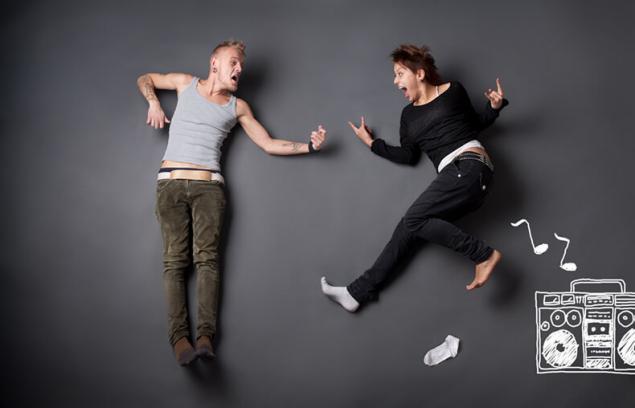
What is included in the response? You know all this. When you see someone, and if there is love, there is a feeling that we had known each other forever. We are not strangers to each other. Once we treat each other, we belong to each other as two gloves that complement each other. This is the phenomenon of resonance.
You know what a resonance in acoustics, physics? This phenomenon is surprising, when one day see him.
Most clearly seen when in a space of sound with two guitars: when both guitars in tune, and I string with the note "mi" in a guitar touch, then another guitar that stands against the wall, too, starts to vibrate, this string as if it concerns magical, invisible hand. You may think that it is an esoteric phenomenon, because no one does not touch it. I touch to the string, and the string is played and that, too.
This phenomenon can be easily explained through the air vibration. And, by analogy with this process, too, there is something like love. There is something that we can not simply explain the pressure of some libidinal impulses. If we would have looked for love, it would be reductionist. Well here comes into resonance?
From the standpoint of the phenomenology of love - an ability that makes us clairvoyants, which enables us to see deeper
. Max Scheler says that the love we see another not merely in its value, but it naivozmozhno high value. We see as much as possible the value of another. We see not only the value of which he is at the moment, but we see it in its potentiality, and this means not that it is, but what it can become. We see him in his being. Love phenomenological in the highest sense. We see each other not only in its being, but in the possibilities of its development. And feel a resonance, we feel that we like each other.
Goethe speaks of the essential relationship: the value we see in another, if we love him - it is his essence, what it is that makes him the one and only (indispensable). What characterizes it, which is its core. Therefore, a loved one can not be replaced by anyone. Because this creature has only once. Also, as I have only once. Each of us - the only one, and only one of its kind. And in this the essential core, we are irreplaceable. If we ask him who loves us, what do you love me
?
We can only say: I love you because you are so there, because such is your being, what I see. And, in fact, we can not say anything more if you really love.
Of course, we can say: I love you because you wonderful sex. But it is love, as it were on a different level.
If we talk about the essence of love, its core, it is only then really there is a meeting with you when I you important. When I get a sense of what you are and what you can become, and it may well be that I, along with you. My presence, my attitude to you can be beneficial for you in what you can become. My love can support you in this process of development, in which you can become a greater extent by the fact that you already have. My love can release you for what you are. My love can help you to become an even more essential, so that your life will be more essential.
Dostoevsky once said: "to love - is to see man as God intended it." Better is impossible to say. I am very grateful to Dostoevsky for his in-depth look also in other aspects. It's the same thing that Max Scheler expressed in philosophical language: "to see the other in what it can be - to become even better, to a greater extent himself." And I open, discover it in another, when the resonance occurs in me. In my being I feel that for me is something touching, something appeals to me.
When I love, and revealed something very significant in me. Not like I'm sitting on a Saturday night and I think I would do such a thing to me - and I'll call a minute of his girlfriend. It is not essential. If something essentially, it is always present in me. Loving always carries a loved one with a. And love makes a clairvoyant.
Karl Jaspers once wrote: "every year I see a woman even more beautiful ..." - you believe it? And he is still in the course of further wrote: "... but just loving it sees." Thus, love is the experience of resonance, which occurs due to the in-depth look into the essence of the other, which shows itself in my being.

Point three. We have examined the experience of love as a value, then we are more closely described this value, look at it: it is a different creature, which I have in my regard being
. Now the third. In love contains some item or setting. Любящий человек не только переживает, что он мог бы сделать другому что-то хорошее, но он хочет сделать другому что-то хорошее.
Любовь можно описать как некоторую позицию человека или установку. Она очень простая: я хочу тебе блага. Если я не ощущаю этого от другого человека, то маловероятно, что он меня любит.
Мы хотим нашим детям добра, нашему партнёру – чтобы ему было хорошо, нашим друзьям – чтобы им было хорошо. Это значит, что мы хотим поддержать их бытие, их жизнь; оказать им помощь, содействие, потому что у нас есть очень глубокое ощущение, сильное чувство по отношению к любимому человеку: это хорошо, что ты есть.
Любовь креативна: она питает, укрепляет, даёт, она хочет поделиться. Августин однажды сказал: «я люблю и потому хочу, чтобы ты был». Любовь поддерживает другого человека в его росте. Нет никакой другой лучшей почвы для того чтобы ребёнок мог хорошо расти, чем почва любви. Мы как бы сообщаем ребёнку: хорошо, что ты есть, и я хочу, чтобы тебе было в жизни хорошо, чтобы ты мог хорошо быть в жизни, чтобы ты хорошо рос, чтобы ты хорошо стал самим собой. Карл Ясперс считал, что это центральное определение любви, в котором любовь являет себя как нечто генеративное.
Во влюблённости речь больше идёт обо мне, потому что большая часть того, что я вижу – это мои собственные проекции, фантазии, желания.
И то, что я вижу от другого, также даёт мне стимул к собственным фантазиям. Влюблённость околдовывает даже предметы, которые относятся к человеку, в которого я влюблён. Его машина – самая прекрасная на улице; его ручка (шариковая) – я храню её у сердца, она становится символом этого очарования, и это может развиваться вплоть до фетишизма. Мы можем после окончания это ещё обсудить.
Но в завершение я хотел бы ещё несколько слов сказать о сексуальности в любви. Есть гомосексуальная любовь. Она может быть столь же персональной, как и любовь гетеросексуальная. Сексуальность – это язык любви, так мы её понимаем. Сексуальность не только служит для продолжения рода; человеческая сексуальность – это форма диалога. И в этом контексте мы можем понять, что гомосексуальная любовь также может быть формой диалога, формой выражения того, что человек персонально переживает по отношению к другому. И если мы говорим, что любовь хочет иметь будущее и в своём генеративном аспекте открыта к чему-то третьему, то это не обязательно может быть ребёнок: это могут быть проекты или задачи, или просто празднование радости жизни.
Есть, конечно, и различия между гомосексуальной и гетеросексуальной любовью. Пожалуй, одно различие можно упомянуть: в гетеросексуальной любви эмпатия, способность сопереживать, понимать другого не так далеко простирается, как в гомосексуальной любви. Потому что другой пол имеет в себе что-то, чего у меня нет, что-то чуждое.
Источником сексуальности вообще, в том числе гетеросексуальной, являются тело и психика. Это некоторая чувственность на плоскости жизни. Французский феноменолог Мерло-Понти говорит об определённой двусмысленности любви: в сексуальности мы себя переживаем одновременно и субъектом и объектом. Мы с одной стороны являемся субъектом переживания, а с другой – являемся объектом для другого. И вот эти две стороны свойственны сексуальности – с одной стороны, персональная, с другой – предметно-функциональная. Сексуальность может углубить и сделать возможной встречу, но у неё есть и объектная сторона, в рамках которой другой служит для удовлетворения моих собственных желаний и потребностей, и обе эти стороны существенным образом относятся к сексуальности.
Удовлетворение собственного желания, радость жизни, переживание наслаждения как бы развивает моё отношение к телу, телесности. Благодаря другому человеку, я получаю более интенсивное отношение к моему наслаждению жизнью. Человеку это также нужно, это благотворно для него. Если в сексуальности содержится аспект встречи, то тогда мы переживаем целостность, тогда мы с другим человеком как бы полноценно вместе. Тогда мы общаемся и на чувственном, телесном уровне, и переживаем наше существо на всех уровнях человеческого бытия. Это высочайшая форма, в которой мы можем жить, проживать партнёрскую любовь. Потому что в этой форме любви осуществляются, происходят все её качества, в ней любовь реализуется и обретает действительное состояние.
Но в мире, конечно, сексуальность существует в различных формах и безо всякой встречи, когда речь идёт только о наслаждении, только обо мне, и другой просто нужен мне для этого. Здесь возникает много вопросов; некоторые принимают это как само собой разумеющееся, другие страдают от этого. В моей практике, прежде всего женщины страдают от такой сексуальности. Потому что если у женщины есть сексуальное желание, а у мужчины нет, то у мужчины нет эрекции, и он спокоен. Это некоторая несправедливость природы.
Переживание сексуальности без того, чтобы аспект встречи был в полной мере представлен, тем не менее, может принести некоторое переживание счастья. Естественно, при условии, что другому не наносится травма, например, путём насилия или соблазнения. Если в сексуальности на первом плане стоит объектный характер, мы можем переживать в ней свою жизненную силу, витальность, радость жизни.
Это не самая высокая форма, потому что измерение персонального в ней не развито. Но нельзя такую сексуальность с самого начала отвергать – при условии, что партнёр согласен на такую форму отношений. Однако человек тонко чувствующий ощущает, что чего-то в таком роде сексуальности недостаёт.
Я хочу завершить мыслью о счастье в любви. Счастье в любви – это мочь переживать, что некто вместе со мной меня разделяет и что я могу разделять бытие другого человека, что я приглашён к кому-то переживать его, чтобы мочь разделить с ним его бытие. Если я это приглашение переживаю как нечто прекрасное, в этом случае я люблю. Если я хочу быть, присутствовать при этом, то я люблю. Если я хочу ему добра, то я люблю.

Любовь делает человека готовым к страданию. Любовь – это глубочайшая страсть (страдание). Есть хасидская мудрость, которая говорит: любящий чувствует, что другому причиняют боль. Страдание в связи с любовью не только значит быть готовым к страданию, но это значит также и то, что сама любовь может быть причиной страдания. Любовь порождает тоску, которая в нас горит. В любви мы часто переживаем неисполненность, безответность и ограниченность.
Когда люди живут вместе, они могут причинять друг другу боль сами того не желая, из-за своей ограниченности. Партнёр, например, хочет поговорить или хочет сексуальной близости, а я сегодня устал, не могу – и это причиняет другому боль и мне тоже причиняет боль: здесь мы наталкиваемся на собственные ограничения. И формы, в которых люди могут, находясь в любви, причинять друг другу боль, весьма многообразны.
Очень важно знать, потому что это существенно относится к любви, что мы готовы вместе нести эту готовность к страданию. Только во влюблённости содержится остаток Рая. В реальной любви, которая осуществляется в жизни, есть эта теневая сторона. И эта теневая сторона даёт нам возможность почувствовать, насколько сильна наша любовь. Сколько может выдержать нагрузки этот мост любви. Совместно пережитое страдание больше связывает людей, чем совместно пережитая радость.
В любви человек страдает, несёт страдание, которое переживает другой. Если моему партнёру плохо, мне тоже плохо. Если моему ребенку плохо, то я страдаю. Любящий готов к эмпатии, он хочет быть близким к другому также и тогда, когда тому плохо. Любящий не хочет оставить любимого одного, и в такой ситуации любовь отчётливо проявляет себя.
Находясь в любви, мы страдаем от тоски, томления или горения в желании единства. И мы страдаем от того, что то, к чему мы стремимся – это единство – мы не можем его реализовать в такой полной мере, в какой мы этого хотим. И мы страдаем от того, что полной гармонии в любви, полного соответствия, к которому мы стремимся, не получается. Другой не соответствует мне в полной мере, он не есть я. Он другой. У нас есть некоторые общие пересечения, но есть и различия. Это может быть причиной того, что мы не можем полностью войти в положение другого, потому что он всё-таки не идеальный партнёр: что-то мне в нём не до конца нравится.
Когда возникают эти проблемы, человек имеет склонность отходить назад, и он ждёт: может быть, встречу лучшего партнёра? Но если тот не появляется, то человек возвращается: ведь уже два-три года вместе прожили, тогда вместе и останемся, может быть, поженимся даже. Но в таких отношениях остаётся некоторая сдержанность, не-до-конца-решённость: у человека не получается полностью сказать своё «Да» по отношению к другому, и человек может этого даже не осознавать в полной мере. У меня было много случаев, когда люди в ходе терапии обнаруживали, что они никогда по-настоящему не женились: они сказали ртом «Да», но сердцем не сказали. Навскидку, я полагаю, что примерно треть пар так живут.
Но счастье в любви – это если я могу тебе что-то сообщать, быть с тобой в общении, если я могу быть с тобой и тебе нравится, что я с тобой, так же как и мне нравится, что ты со мной.
В основе этого феномена лежит резонанс: мы можем влиять на него, но не можем его породить. Мы можем усилить его благодаря решению и благодаря нашему вниманию. И там, где этот резонанс возникает, но мы не хотим осуществлять его в жизни, мы можем дать ему отзвучать, а на уровне жизни воздержаться от его реализации. (публичная лекция в МПГУ, 21 ноября 2007 г.).
Автор расшифровки: Евгений Осин (перевод — Владимир Загвоздкин)
. Not so easy to talk about love. In humans, a lot of contradictory experiences regarding love, because it's a big, huge topic. On the one hand, it is associated with great happiness, but it also entails a lot of suffering and pain, and sometimes is even reason to commit suicide.
It's hard to talk about this great subject, because there are so many different forms of love. For example, parental love, brotherly-sister, children, gay, geterosekseksualnaya love, love of self, love of neighbor, love of art and nature, plants and animals.

And, above all, love - a central theme of Christianity, namely, agape - love of neighbor. We can experience love in the most various forms: from a distance, platonic, in the form of sublimation or in the form of physical love. Love can be associated with different positions, with sadism, masochism, various perversions. And in every single dimension of those that were called, wherever you look - this is the theme of a huge, inexhaustible
. Before we begin, I want to offer you a question: "Do I have a question in connection with love? Do I have a problem with love? »
In 604 BC, Lao Tzu wrote: "Duty without love is not happy (sad). Truth without love makes one critical (dependent on criticism). Education without love generates conflict. The procedure without love makes one petty "- this is important for students and professors; - "Subject knowledge without love makes a person is always right. Possession without love makes people mean. Faith without love makes a person a fanatic. Woe to those who love to stingy. Why live, if not to love? "This ancient knowledge.
Brilliantly, masterfully he describes Lao Tzu is the central moment of love: it makes us human. It makes us available. It opens us and gives us the opportunity to many relationships, relationships. But how can we be so? How can we learn to love? About what was going on in love? How can we experience the love today?
Today, in an age when love called unstable utopia and when some representatives of modern literature, modern philosophy say, execution of longing, longing for human love does not give man happiness. Today we often pessimistic view of love. A huge divorce rate indicates how difficult it is to carry out the love in my life. However, this was not always the case. In the era of romanticism dominated much faith in love. In Christianity, love is seen as something central to life.
In this report, I would like to show the way, how love can lead to a deep happiness, despite the pain that is associated with it.

All of us who study psychology and know that a huge number of studies confirm that love - a central element in the healthy development of the psyche. Without love our children grow up traumatized, they can not reveal their skills, find themselves; they develop personality disorders. Excess of love does the same thing: when too much love, it can not be a proper love. And for each adult love - the most important basis for quality of life, necessary to his life was filled with
. In numerous interviews with dying, they were asked to answer the question: "If you look back at your life, what was in it the most important," And in the first place out of all the responses was: my relationships, my relationship with other people, full of love <. br>
But love is threatened, they turned against it many elements of life: we ourselves - our inclinations, our limitations - and external conditions - social, economic, cultural. So let's try to take a closer look at what is love.
What is the cradle of love? Love is related to the bed - it is necessary to start from there. In any case, the love - the ratio (Us). Relationship - is some basis, the bed on which love rests. Relationship (links) are the well-known characteristics, which we need to know, so let's talk a few minutes about the relationship, so that we can better understand what it means to love and where it is carried out, what it is.
The ratio is made between me and some object. For example, now I have to do with you, you - me. The ratio means that I am in my behavior I consider another, get into his circumstances. In practice, this means that I have in front of you behave a little differently than when I am alone in my room, for example, I can in his room to sit and scratch his head and scratched his nose, and since you are here, I do not. I kind of relation the behavior with your presence. Thus, the relationship affect my behavior. But the relationship - is much more
. The ratio occurs even when I do not want to (unwittingly). The ratio should be a certain automatism. Under this brand the basic structure, when the ratio is only Take account of another, I can not walk away from this relationship, I can not avoid it. It occurs at the moment when I am aware of the presence of an object or a person, when I see it.
For example, if I go and see that there is a chair, I do not go further, as if the chair is not present, but I get around it, so as not to stumble. This ontological basis relationship. I am in relation to its being a fact of life things. Of course, this is not love, but this time in love is always contained. If this point is not contained in love, then it will be difficult. Therefore, we are now doing the grammar of love.
If we make a logical conclusion, we can say: I can not have a relationship. I always have a relationship, I want it or not - in the moment when I realize and see that someone has not seen for thirty years, that at the time when I see it, when it is present, all of a sudden the whole history of our relationship there.
Thus, the relationship has a history and has duration. If we realize this, then we will have to refer to the relationship very carefully. Because everything that happens within the relationship is stored in the relationship forever. And what was once a very painful - for example, the betrayal - is always available, always will be here. But in the same way, and happiness that we experienced together. How do I get around like I was doing with these relations - a special theme
. Let's sum up: I can not be in a relationship. Thus, I was compelled to have a relationship. In respect of the remaining all that I have experienced within these relationships. Drinking never stops.
We can, for example, break the relationship, never talk to each other, but the attitude that there is between us, always saved, and is part of my H. This - a stable bed, the basis of love. And it gives us the opportunity to realize that we have to do with the relationship very carefully and very responsible.
From the relations we distinguish another concept, which is also very important for the understanding of love - a concept meeting. At the meeting other characteristics. When the meeting occurs, a "I" met with "You." I see you, my eyes meet yours, I hear you and I understand you, I'm talking to you - a meeting takes place in the dialogue. Dialog - is a means or medium in which the meeting. The dialogue that takes place not only in words, but can be held and after one look through facial expressions, through the act. If I just touch the other, between us it is already happening a great dialogue. The meeting takes place only when the "I" met with "You." Otherwise, it will not happen.
The meeting is pointed. linear relationship. Relationships can be evaluated in a line, and meeting - as a point. There are various meetings, large and small. Meetings are limited in time, but they affect the relationship. After each meeting, the relationship changed. Relationships live meetings. If the meeting does not take place, then the net proceeds dynamics of relationships, psychodynamics. And this non-personal (impersonal). Personal relationships are by appointment only.
I can not worry about meeting with objects. Relationship - can. A meeting I can survive only with the man when I meet with him I am his creature (nature). Then the relationship becomes essential, intrinsic. And then they become personal.
How do I know that the established personal relationships?
If I feel that I perceive, see, respect, understand. I feel that other, when we together with him, is referring to me. It is important I am, and not only our common cause, a common apartment, general travel, money, clothes, cooking and so on, not only the body and sexuality.

If there is a meeting, each person feels: here we are talking about me. And to me you are important. Thus, the meeting - it is the elixir of life relations. Thanks to the meeting relations rise on the human level. That's the differentiation we need to consider against this background further.
In the future, I want to give a description of love, love the description of the essential contents. I will say that, in fact, we live in love.
My way of knowing - phenomenological, which does not take anything from the general theory, but said on the basis of experiences of individuals. Of course, those thoughts, I now present, systematized and presented in the order; they are well developed in existential philosophy and phenomenology. I particularly rely on Max Scheler, Victor Frankl, and Heidegger.
The first point, about which everyone knows. When we talk about love, we love something or someone, it means that it is very valuable to us. If we love music, we say it is good music. If we read the book and love of the author, or the author of this book are valuable for us. Similarly, if we love a person. If I love a man, it means that this person is very significant for me, it is very valuable, and I feel it. He - my treasure, my favorite. He has a very high value, and we say: my treasure
. Favorite people we love, we experience the love that moment of acceptance, a sense of attraction: I implies that man. We feel that this relationship beneficial to us, and we hope that it is beneficial for the other. We feel - do not think, but feel the heart - that we seem to belong together
. If I feel - it means that I regard this value in my home, in my inner liveliness. Thanks to the man whom I love, I'm worried that in me awakens life that it becomes a more lively, more intense in me. I feel that this man intensifies my thirst for life, does my attitude to life more intense. When I love, I no longer want to live. Love - is an antidepressant. It means to feel, then have another cash in his attitude towards life.
So, we are experiencing a loved one as a certain value in our lives. He cares about me. If I see him, my heart starts beating harder. And it's not only love for a partner, but also if I see my child, my mother, my friend, I feel that what I was concerned that some care; that person means something to me. And this means that it is valuable. We love only valuable. Negative values we can not love. For example, if the other starts to hurt us, cause us suffering, it becomes difficult to continue to love him. Love is exposed to hazards. As soon as the other loses its value, love disappears.
Paragraph two. In love, we experience deep converted us. This means that the other says to me: his face, his gestures, his look, his eyes, his laugh - it all starts to say something to me and resonates within me. Love - is a resonance phenomenon. Love does not have the pressure of demand. Naturally, in love and have that moment. But love is not at the level where the needs are sitting. They refer to certain general conditions of love, but not its essence. The central phenomenon of love is that we seem to enter into a certain resonance with another person.

What is included in the response? You know all this. When you see someone, and if there is love, there is a feeling that we had known each other forever. We are not strangers to each other. Once we treat each other, we belong to each other as two gloves that complement each other. This is the phenomenon of resonance.
You know what a resonance in acoustics, physics? This phenomenon is surprising, when one day see him.
Most clearly seen when in a space of sound with two guitars: when both guitars in tune, and I string with the note "mi" in a guitar touch, then another guitar that stands against the wall, too, starts to vibrate, this string as if it concerns magical, invisible hand. You may think that it is an esoteric phenomenon, because no one does not touch it. I touch to the string, and the string is played and that, too.
This phenomenon can be easily explained through the air vibration. And, by analogy with this process, too, there is something like love. There is something that we can not simply explain the pressure of some libidinal impulses. If we would have looked for love, it would be reductionist. Well here comes into resonance?
From the standpoint of the phenomenology of love - an ability that makes us clairvoyants, which enables us to see deeper
. Max Scheler says that the love we see another not merely in its value, but it naivozmozhno high value. We see as much as possible the value of another. We see not only the value of which he is at the moment, but we see it in its potentiality, and this means not that it is, but what it can become. We see him in his being. Love phenomenological in the highest sense. We see each other not only in its being, but in the possibilities of its development. And feel a resonance, we feel that we like each other.
Goethe speaks of the essential relationship: the value we see in another, if we love him - it is his essence, what it is that makes him the one and only (indispensable). What characterizes it, which is its core. Therefore, a loved one can not be replaced by anyone. Because this creature has only once. Also, as I have only once. Each of us - the only one, and only one of its kind. And in this the essential core, we are irreplaceable. If we ask him who loves us, what do you love me
?

We can only say: I love you because you are so there, because such is your being, what I see. And, in fact, we can not say anything more if you really love.
Of course, we can say: I love you because you wonderful sex. But it is love, as it were on a different level.
If we talk about the essence of love, its core, it is only then really there is a meeting with you when I you important. When I get a sense of what you are and what you can become, and it may well be that I, along with you. My presence, my attitude to you can be beneficial for you in what you can become. My love can support you in this process of development, in which you can become a greater extent by the fact that you already have. My love can release you for what you are. My love can help you to become an even more essential, so that your life will be more essential.
Dostoevsky once said: "to love - is to see man as God intended it." Better is impossible to say. I am very grateful to Dostoevsky for his in-depth look also in other aspects. It's the same thing that Max Scheler expressed in philosophical language: "to see the other in what it can be - to become even better, to a greater extent himself." And I open, discover it in another, when the resonance occurs in me. In my being I feel that for me is something touching, something appeals to me.
When I love, and revealed something very significant in me. Not like I'm sitting on a Saturday night and I think I would do such a thing to me - and I'll call a minute of his girlfriend. It is not essential. If something essentially, it is always present in me. Loving always carries a loved one with a. And love makes a clairvoyant.
Karl Jaspers once wrote: "every year I see a woman even more beautiful ..." - you believe it? And he is still in the course of further wrote: "... but just loving it sees." Thus, love is the experience of resonance, which occurs due to the in-depth look into the essence of the other, which shows itself in my being.

Point three. We have examined the experience of love as a value, then we are more closely described this value, look at it: it is a different creature, which I have in my regard being
. Now the third. In love contains some item or setting. Любящий человек не только переживает, что он мог бы сделать другому что-то хорошее, но он хочет сделать другому что-то хорошее.
Любовь можно описать как некоторую позицию человека или установку. Она очень простая: я хочу тебе блага. Если я не ощущаю этого от другого человека, то маловероятно, что он меня любит.
Мы хотим нашим детям добра, нашему партнёру – чтобы ему было хорошо, нашим друзьям – чтобы им было хорошо. Это значит, что мы хотим поддержать их бытие, их жизнь; оказать им помощь, содействие, потому что у нас есть очень глубокое ощущение, сильное чувство по отношению к любимому человеку: это хорошо, что ты есть.
Любовь креативна: она питает, укрепляет, даёт, она хочет поделиться. Августин однажды сказал: «я люблю и потому хочу, чтобы ты был». Любовь поддерживает другого человека в его росте. Нет никакой другой лучшей почвы для того чтобы ребёнок мог хорошо расти, чем почва любви. Мы как бы сообщаем ребёнку: хорошо, что ты есть, и я хочу, чтобы тебе было в жизни хорошо, чтобы ты мог хорошо быть в жизни, чтобы ты хорошо рос, чтобы ты хорошо стал самим собой. Карл Ясперс считал, что это центральное определение любви, в котором любовь являет себя как нечто генеративное.
Во влюблённости речь больше идёт обо мне, потому что большая часть того, что я вижу – это мои собственные проекции, фантазии, желания.
И то, что я вижу от другого, также даёт мне стимул к собственным фантазиям. Влюблённость околдовывает даже предметы, которые относятся к человеку, в которого я влюблён. Его машина – самая прекрасная на улице; его ручка (шариковая) – я храню её у сердца, она становится символом этого очарования, и это может развиваться вплоть до фетишизма. Мы можем после окончания это ещё обсудить.
Но в завершение я хотел бы ещё несколько слов сказать о сексуальности в любви. Есть гомосексуальная любовь. Она может быть столь же персональной, как и любовь гетеросексуальная. Сексуальность – это язык любви, так мы её понимаем. Сексуальность не только служит для продолжения рода; человеческая сексуальность – это форма диалога. И в этом контексте мы можем понять, что гомосексуальная любовь также может быть формой диалога, формой выражения того, что человек персонально переживает по отношению к другому. И если мы говорим, что любовь хочет иметь будущее и в своём генеративном аспекте открыта к чему-то третьему, то это не обязательно может быть ребёнок: это могут быть проекты или задачи, или просто празднование радости жизни.
Есть, конечно, и различия между гомосексуальной и гетеросексуальной любовью. Пожалуй, одно различие можно упомянуть: в гетеросексуальной любви эмпатия, способность сопереживать, понимать другого не так далеко простирается, как в гомосексуальной любви. Потому что другой пол имеет в себе что-то, чего у меня нет, что-то чуждое.
Источником сексуальности вообще, в том числе гетеросексуальной, являются тело и психика. Это некоторая чувственность на плоскости жизни. Французский феноменолог Мерло-Понти говорит об определённой двусмысленности любви: в сексуальности мы себя переживаем одновременно и субъектом и объектом. Мы с одной стороны являемся субъектом переживания, а с другой – являемся объектом для другого. И вот эти две стороны свойственны сексуальности – с одной стороны, персональная, с другой – предметно-функциональная. Сексуальность может углубить и сделать возможной встречу, но у неё есть и объектная сторона, в рамках которой другой служит для удовлетворения моих собственных желаний и потребностей, и обе эти стороны существенным образом относятся к сексуальности.
Удовлетворение собственного желания, радость жизни, переживание наслаждения как бы развивает моё отношение к телу, телесности. Благодаря другому человеку, я получаю более интенсивное отношение к моему наслаждению жизнью. Человеку это также нужно, это благотворно для него. Если в сексуальности содержится аспект встречи, то тогда мы переживаем целостность, тогда мы с другим человеком как бы полноценно вместе. Тогда мы общаемся и на чувственном, телесном уровне, и переживаем наше существо на всех уровнях человеческого бытия. Это высочайшая форма, в которой мы можем жить, проживать партнёрскую любовь. Потому что в этой форме любви осуществляются, происходят все её качества, в ней любовь реализуется и обретает действительное состояние.
Но в мире, конечно, сексуальность существует в различных формах и безо всякой встречи, когда речь идёт только о наслаждении, только обо мне, и другой просто нужен мне для этого. Здесь возникает много вопросов; некоторые принимают это как само собой разумеющееся, другие страдают от этого. В моей практике, прежде всего женщины страдают от такой сексуальности. Потому что если у женщины есть сексуальное желание, а у мужчины нет, то у мужчины нет эрекции, и он спокоен. Это некоторая несправедливость природы.
Переживание сексуальности без того, чтобы аспект встречи был в полной мере представлен, тем не менее, может принести некоторое переживание счастья. Естественно, при условии, что другому не наносится травма, например, путём насилия или соблазнения. Если в сексуальности на первом плане стоит объектный характер, мы можем переживать в ней свою жизненную силу, витальность, радость жизни.
Это не самая высокая форма, потому что измерение персонального в ней не развито. Но нельзя такую сексуальность с самого начала отвергать – при условии, что партнёр согласен на такую форму отношений. Однако человек тонко чувствующий ощущает, что чего-то в таком роде сексуальности недостаёт.
Я хочу завершить мыслью о счастье в любви. Счастье в любви – это мочь переживать, что некто вместе со мной меня разделяет и что я могу разделять бытие другого человека, что я приглашён к кому-то переживать его, чтобы мочь разделить с ним его бытие. Если я это приглашение переживаю как нечто прекрасное, в этом случае я люблю. Если я хочу быть, присутствовать при этом, то я люблю. Если я хочу ему добра, то я люблю.

Любовь делает человека готовым к страданию. Любовь – это глубочайшая страсть (страдание). Есть хасидская мудрость, которая говорит: любящий чувствует, что другому причиняют боль. Страдание в связи с любовью не только значит быть готовым к страданию, но это значит также и то, что сама любовь может быть причиной страдания. Любовь порождает тоску, которая в нас горит. В любви мы часто переживаем неисполненность, безответность и ограниченность.
Когда люди живут вместе, они могут причинять друг другу боль сами того не желая, из-за своей ограниченности. Партнёр, например, хочет поговорить или хочет сексуальной близости, а я сегодня устал, не могу – и это причиняет другому боль и мне тоже причиняет боль: здесь мы наталкиваемся на собственные ограничения. И формы, в которых люди могут, находясь в любви, причинять друг другу боль, весьма многообразны.
Очень важно знать, потому что это существенно относится к любви, что мы готовы вместе нести эту готовность к страданию. Только во влюблённости содержится остаток Рая. В реальной любви, которая осуществляется в жизни, есть эта теневая сторона. И эта теневая сторона даёт нам возможность почувствовать, насколько сильна наша любовь. Сколько может выдержать нагрузки этот мост любви. Совместно пережитое страдание больше связывает людей, чем совместно пережитая радость.
В любви человек страдает, несёт страдание, которое переживает другой. Если моему партнёру плохо, мне тоже плохо. Если моему ребенку плохо, то я страдаю. Любящий готов к эмпатии, он хочет быть близким к другому также и тогда, когда тому плохо. Любящий не хочет оставить любимого одного, и в такой ситуации любовь отчётливо проявляет себя.
Находясь в любви, мы страдаем от тоски, томления или горения в желании единства. И мы страдаем от того, что то, к чему мы стремимся – это единство – мы не можем его реализовать в такой полной мере, в какой мы этого хотим. И мы страдаем от того, что полной гармонии в любви, полного соответствия, к которому мы стремимся, не получается. Другой не соответствует мне в полной мере, он не есть я. Он другой. У нас есть некоторые общие пересечения, но есть и различия. Это может быть причиной того, что мы не можем полностью войти в положение другого, потому что он всё-таки не идеальный партнёр: что-то мне в нём не до конца нравится.
Когда возникают эти проблемы, человек имеет склонность отходить назад, и он ждёт: может быть, встречу лучшего партнёра? Но если тот не появляется, то человек возвращается: ведь уже два-три года вместе прожили, тогда вместе и останемся, может быть, поженимся даже. Но в таких отношениях остаётся некоторая сдержанность, не-до-конца-решённость: у человека не получается полностью сказать своё «Да» по отношению к другому, и человек может этого даже не осознавать в полной мере. У меня было много случаев, когда люди в ходе терапии обнаруживали, что они никогда по-настоящему не женились: они сказали ртом «Да», но сердцем не сказали. Навскидку, я полагаю, что примерно треть пар так живут.
Но счастье в любви – это если я могу тебе что-то сообщать, быть с тобой в общении, если я могу быть с тобой и тебе нравится, что я с тобой, так же как и мне нравится, что ты со мной.
В основе этого феномена лежит резонанс: мы можем влиять на него, но не можем его породить. Мы можем усилить его благодаря решению и благодаря нашему вниманию. И там, где этот резонанс возникает, но мы не хотим осуществлять его в жизни, мы можем дать ему отзвучать, а на уровне жизни воздержаться от его реализации. (публичная лекция в МПГУ, 21 ноября 2007 г.).
Автор расшифровки: Евгений Осин (перевод — Владимир Загвоздкин)
The strength of the mother's curse or new discoveries epigeneticist
Every great director has a muse, or even two






